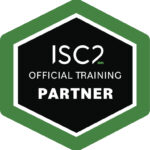Earning the globally recognized CSSLP secure software development certification is a proven way to build your career and better incorporate security practices into each phase of the software development lifecycle (SDLC).
your career and better incorporate security practices into each phase of the software development lifecycle (SDLC).
CSSLP certification recognizes leading application security skills. It shows employers and peers you have the advanced technical skills and knowledge necessary for authentication, authorization and auditing throughout the SDLC using best practices, policies and procedures established by the cybersecurity experts at ISC2.
Prove your skills, advance your career, and gain support from a community of cybersecurity leaders here to help you throughout your professional journey.
This course is designed for software professionals that have the expertise to incorporate security practices – authentication, authorization and auditing – into each phase of the software development lifecycle (SDLC), from software design and implementation to testing and deployment. Led by an ISC2 authorized instructor, this training seminar provides a comprehensive review of information systems security concepts and industry best practices, covering the following eight domains of the CSSLP Common Body of Knowledge (CBK®).
